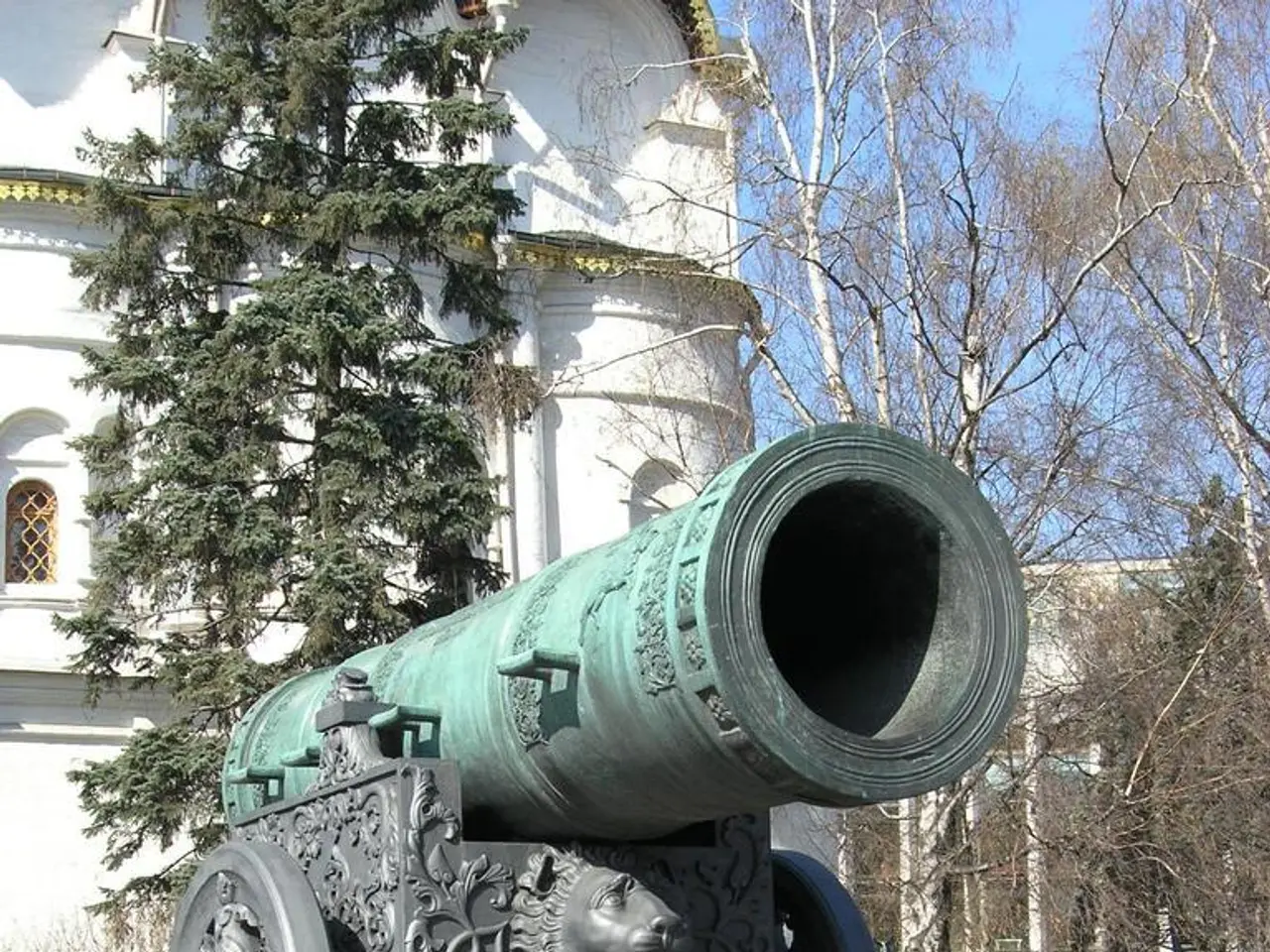Russia Plans to Implement a National VPN Service
In a move aimed at increasing government control over the internet, Russia is implementing a new law that criminalizes accessing "extremist materials" online through VPNs, with fines for individuals and providers involved in VPN advertising or usage that circumvents these restrictions [1][2].
The policy, which includes the 2019 "sovereign internet" law, seeks to isolate the Russian internet ("RuNet") from the global internet under Kremlin-controlled infrastructure [4]. This setup consolidates control over internet service providers, IP addresses, and DNS systems, allowing authorities to monitor, throttle, and block internet traffic more effectively.
The new VPN restrictions are part of a broader crackdown to suppress unsanctioned content and limit access to foreign platforms, including moves to ban apps like WhatsApp [1][2].
The implications of these measures are far-reaching:
- Strong restrictions on individuals’ online privacy, with ISPs and VPN providers compelled to cooperate with the state or face severe fines [3].
- Significantly reduced access to foreign internet platforms, as VPNs become riskier and less reliable tools for bypassing censorship [1][4].
- Increased censorship, blocking, and throttling of content deemed extremist or otherwise disapproved by the state, with expanding lists of banned materials [3][4].
- Greater isolation of Russian internet users from global information and communication, contributing to a controlled and state-monitored national internet space [4].
The status of popular messaging app Telegram's availability in Russia remains undecided.
Interestingly, traffic in various European countries, including Serbia, Finland, the Netherlands, and Slovakia, increased significantly due to the YouTube slowdown in Russia in the second half of 2024 [5].
A paradox exists where something is banned, but people continue to access it, such as Instagram and Facebook, which are owned by the extremist organization Meta [6]. However, as of now, there are no penalties or responsibilities for using extremist resources on the internet.
German Klimenko, a former presidential advisor to Vladimir Putin, has suggested creating a state VPN service, believing that it would allow Russians to access foreign internet platforms that are legal in Russia but blocked elsewhere [7]. Access to content via the state VPN would be provided according to Russian law and information security requirements.
However, the use of a VPN will not be considered a violation of the law, according to Anton Gorelkin [8]. From September 1, 2025, amendments will come into force that prohibit the distribution of advertising on resources banned in Russia, including social networks [9]. Roskomnadzor plans to spend 58 billion rubles on the modernization of internet resource blocking systems [10].
As the new VPN law takes effect, the future of the Russian internet landscape continues to evolve, with increased control, censorship, and potential isolation from the global internet.
References: 1. Russia's New VPN Law 2. Russia's VPN Crackdown 3. Privacy Concerns in Russia 4. Russia's "Sovereign Internet" Law 5. YouTube Slowdown Impact 6. Meta and Extremist Content 7. State VPN Proposal 8. VPN Use and the Law 9. Advertising Ban 10. Modernization Funding
- The new VPN law, part of Russia's broader political efforts, aims to strengthen control over internet access and enforce policies related to content, as stipulated in the policy-and-legislation domain.
- The rise in internet traffics in various European countries is potentially linked to the Russian government's politics and legislation regarding the general-news related issues, such as the new VPN restrictions and the YouTube slowdown in Russia.





